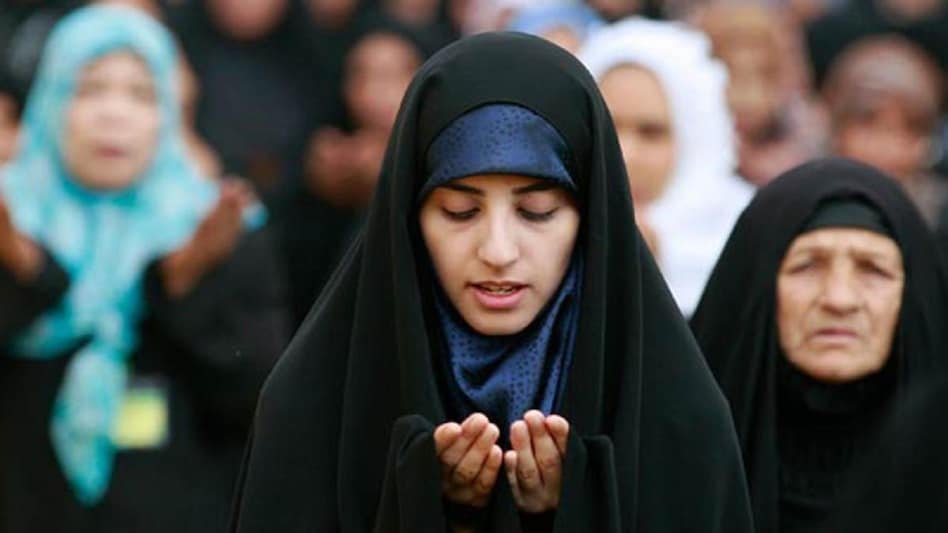Islam is not my choice, Woman challenges herself to be a Muslim in court


An interesting case of conversion has come up in Malaysia, which will be heard by the High Court of Kuala Lumpur on June 15. A Malaysian woman born to Muslim parents has filed an application in the court to hear her case and get justice. The woman says that even though she was born to Muslim parents, she never accepted this religion. She believes in Confucianism and Buddhism, so she should not be considered a Muslim.
The 32-year-old woman was born to a Muslim-turned-father and a Muslim mother after conversion. The woman’s name is being kept confidential after the court’s intervention.
High Court Judge Datuk Ahmed Kamal Mohammad Shahid, after hearing the arguments of his lawyer and Attorney General’s Chambers (AGC), said that the verdict in the matter will be pronounced on June 15. He said that on the same day it would be decided whether the decision of the Sharia Court would be allowed for judicial review or not.
In this case, the woman filed suit for judicial review on March 4, naming the four defendants—the Sharia Court of Appeal, the Sharia High Court, the Federal Territories Islamic Religious Council (Maiwp) and the Malaysian government.
The woman demands that the court declare that she is no longer a Muslim and is entitled to practice her religion of Confucianism and Buddhism. It also wants a declaration from the women’s court whether the Sharia Court has the right to expel a person from the religion of Islam.
Sharia court bans woman from leaving Islam
The woman is seeking to reverse the Sharia High Court’s July 2020 and December 2021 decisions of the Sharia Court of Appeal in which both Sharia court refused to recognize her leaving the Muslim religion. Its demand is that an interim stay on the decision of the Sharia courts should be done.
When the woman was born, due to the Muslim religion of her parents, she was considered a Muslim from birth. The woman’s lawyers say that after the woman’s lawyers say that after the divorce of her parents, she was brought up by her mother but her mother tried to impose Islam on her.
When she grew up, she accepted Confucianism and Buddhism as her religion. In August 2018, the woman declared in an application to the Sharia High Court in Kuala Lumpur that she had never converted to Islam and therefore should not be considered a Muslim.
What did the woman say in the Sharia court?
The woman told the court that she never adopted the teachings of Islam. He never believed in Islam, he got this religion because of his parents. The woman told the court that she regularly consumes pork and alcohol which is prohibited under Islam but not under Buddhism.
But before hearing his case in December 2018, the Sharia High Court ordered him to attend 12 counseling sessions on Islam over six months from January to June 2019. The woman attended these counseling sessions thinking that after this she would be allowed to leave Islam, but later the court refused to leave her religion.
In August 2020, the woman appealed to the Sharia Court of Appeal in Kuala Lumpur. But on December 8, 2021, the court rejected his appeal.
Lawyers’ argument
The woman’s lawyer Fahri Azzat gave nine main arguments in the court. The lawyer said that the Sharia Court has no power to allow anyone to leave Islam.
Fahri said the woman had renounced Islam and presented evidence that she was no longer a Muslim, had embraced Confucianism and Buddhism. In such a situation, non-acceptance of his evidence by the court is irrational.
Fahri noted that the Sharia High Court refused the woman’s decision to leave the Muslim religion and ruled that Article 11(1) of the country’s constitution, the right to freedom of religion, did not apply to Muslims.
The lawyer said, ‘I would say that this decision of the Sharia court is a clear violation of Article 11(1) and the Sharia court has no authority to interpret Article 11(1). Only civil courts have the power to interpret the federal constitution.
Fahri argued that his client’s right under Article 11(1) has been violated. He also argued that his constitutional rights were violated by sending his client to counseling sessions. The whole process took a long time in which the woman suffered financial loss and in the end she was told that she could not leave Islam.
In this case, the lawyer of the government and the Attorney General gave their side. Public prosecutor Mohd Sallehuddin Mohamed Ali, representing the AG, argued that the High Court should not judicially review the decisions of Sharia courts.
Sallehuddin said that the decisions of Sharia courts cannot be reviewed by civil courts.
Referring to Article 121(1A), he said that this article states that civil courts will have no power over the decisions of Sharia courts.
Sallehuddin argued that the issue of conversion from Islam falls within the jurisdiction of the Sharia courts. The counsel argued that Article 121(1A) would mean that once the case is decided by the Sharia courts, the civil courts cannot do judicial review on the decisions of the Sharia courts.
Sallehuddin repeatedly insisted that civil courts cannot review the decisions of Sharia courts, even if Sharia courts have made a wrong decision. The court is scheduled to decide on this matter on June 15.
DISCLAIMER: The author is solely responsible for the views expressed in this article. The author carries the responsibility for citing and/or licensing of images utilized within the text.
